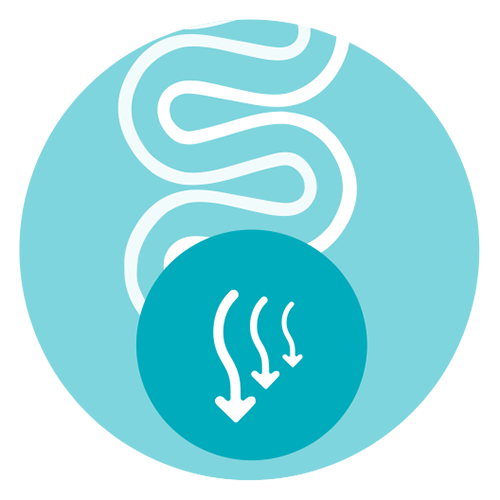What is Symproic?
Symproic® (naldemedine) is a prescription medicine used to treat constipation that is caused by prescription pain medicines called opioids, in adults with long-lasting (chronic) pain that is not caused by active cancer.
IMPORTANT SAFETY INFORMATION
Symproic may cause serious side effects, including:
- Tear in your stomach or intestinal wall (perforation). Stomach pain that is severe can be a sign of a serious medical condition. If you get stomach pain that does not go away, stop taking Symproic and get emergency medical help right away.
- Opioid withdrawal. You may have symptoms of opioid withdrawal during treatment with Symproic including sweating, chills, tearing, warm or hot feeling to your face (flush), sneezing, fever, feeling cold, abdominal pain, diarrhea, nausea, and vomiting. Tell your healthcare provider if you have any of these symptoms.
Do not take Symproic if you:
- Have a bowel blockage (intestinal obstruction) or have a history of bowel blockage.
- Are allergic to Symproic or any of the ingredients in Symproic. Tell your healthcare provider or pharmacist before you start or stop any medicines during treatment with Symproic.
Before you take Symproic, tell your healthcare provider about all your medical conditions, including if you:
- Have any stomach or bowel (intestines) problems, including stomach ulcer, Crohn’s disease, diverticulitis, cancer of the stomach or bowel, or Ogilvie’s syndrome.
- Have liver problems.
- Are pregnant or plan to become pregnant. Taking Symproic during pregnancy may cause opioid withdrawal symptoms in your unborn baby. Tell your healthcare provider right away if you become pregnant during treatment with Symproic.
- Are breastfeeding or plan to breastfeed. It is not known if Symproic passes into breast milk. Taking Symproic while you are breastfeeding may cause opioid withdrawal in your baby. You should not breastfeed during treatment with Symproic and for 3 days after your last dose. You and your healthcare provider should decide if you will take Symproic or breastfeed. You should not do both.
Tell your healthcare provider about all the medicines you take, including prescription and over-the-counter medicines, vitamins, and herbal supplements. Certain medicines may affect the way Symproic works.
If you stop taking your opioid pain medicine, stop taking Symproic and tell your healthcare provider.
The most common side effects of Symproic include: stomach (abdomen) pain, diarrhea, nausea and vomiting (gastroenteritis).
You are encouraged to report negative side effects of prescription drugs to the FDA. Visit www.fda.gov/medwatch, or call 1-800-FDA-1088.
Please see Full Prescribing Information and Medication Guide for Symproic.




